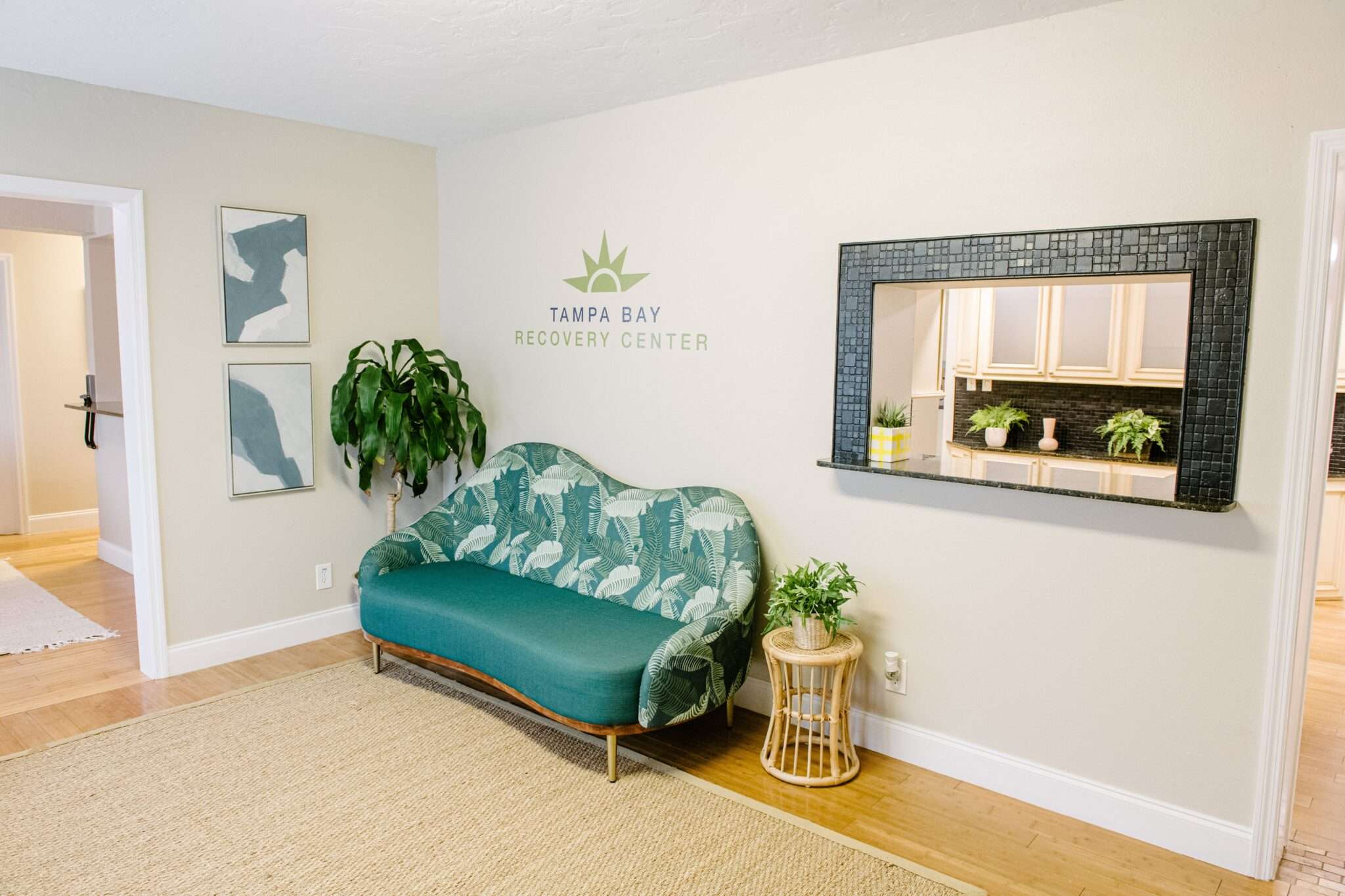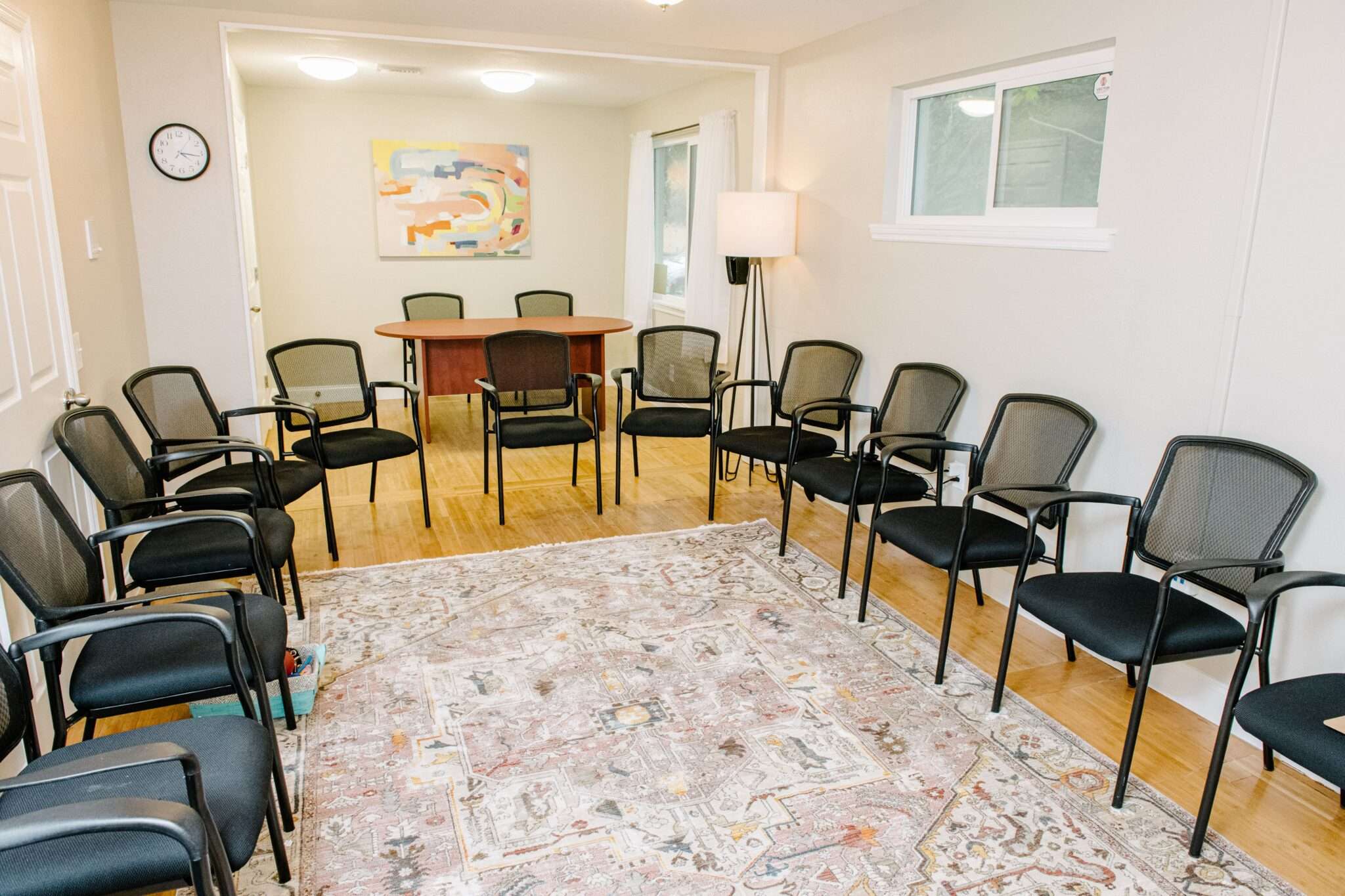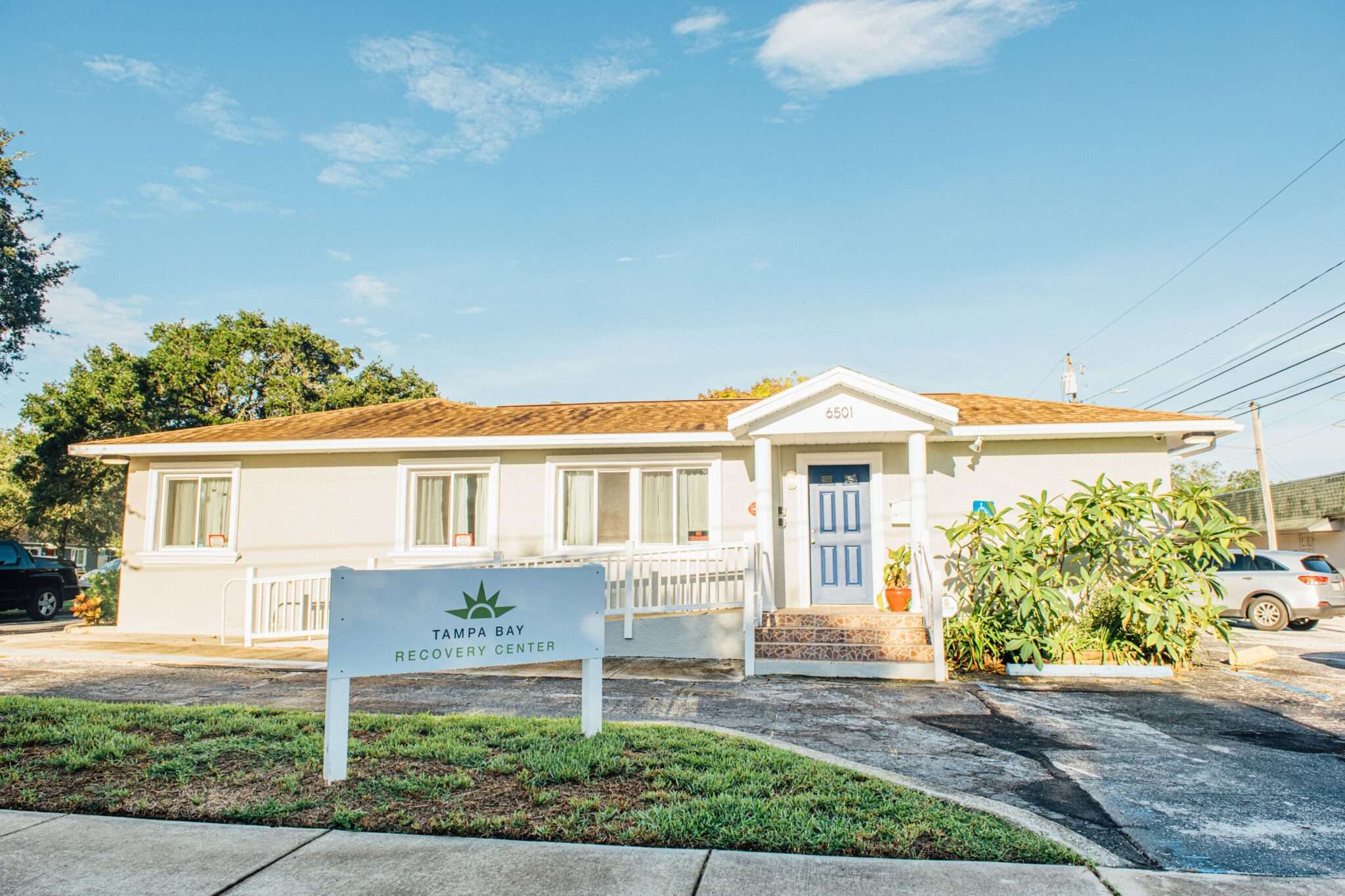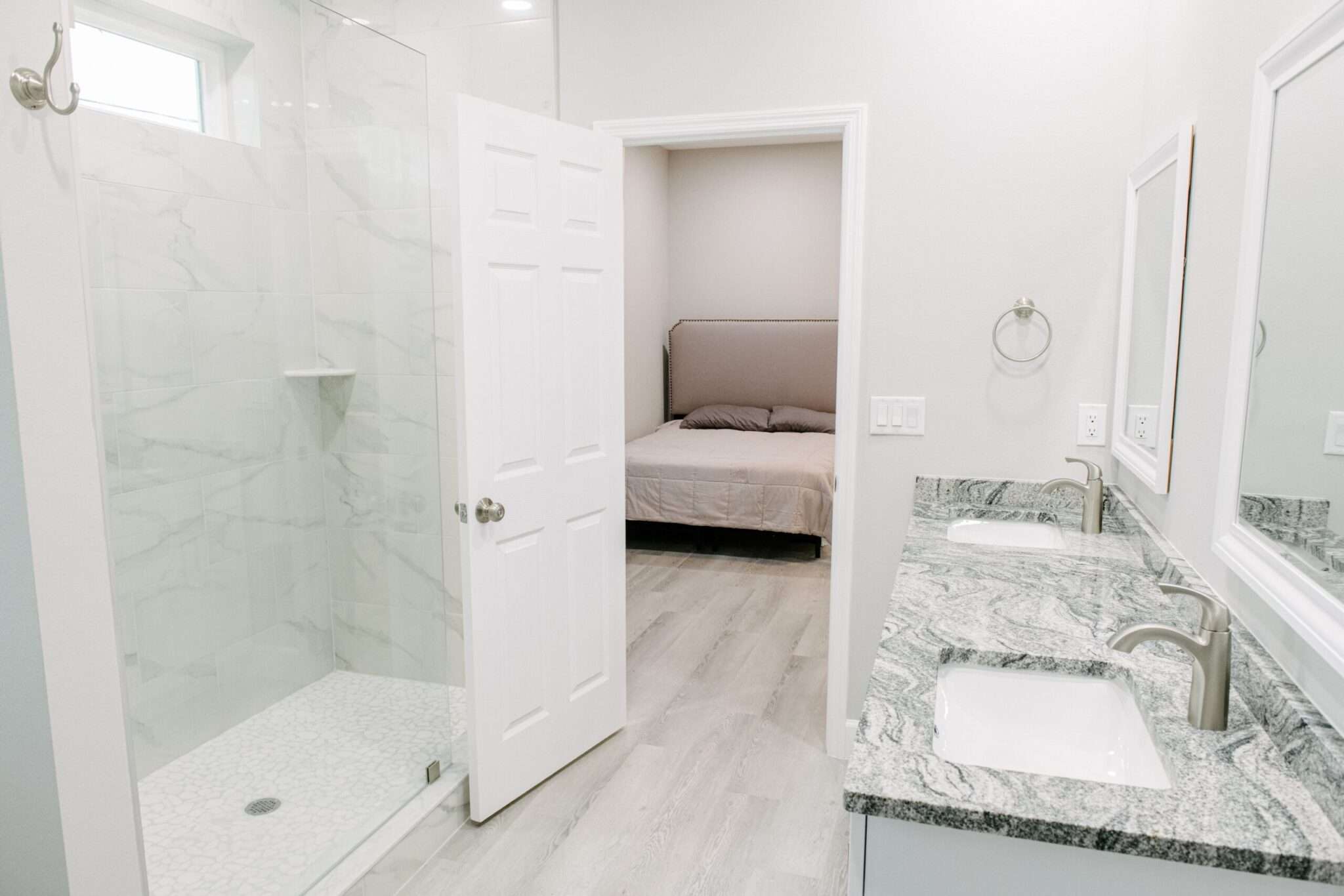Some mental health disorders share similarities due to symptoms and underlying causes. However, it’s important to have the correct diagnosis to find the best pathway to treatment. A common example of this is understanding borderline personality disorder vs bipolar.
At Gulf Coast Recovery Center, we offer comprehensive treatment for several types of mental health disorders. Visit our admissions page today to begin.
What is Borderline Personality Disorder (BPD)?
Borderline personality disorder (BPD) is a Cluster B personality disorder.
According to MedlinePlus, Cluster B personality disorders “involve dramatic and emotional thoughts and behaviors that can keep changing.” Other Cluster B personality disorders include narcissistic, histrionic, and antisocial personality disorders.
About 9.1% of US adults have a personality disorder with 1.4% having BPD, based on data published by the National Institute of Mental Health (NIMH).
Symptoms of BPD
A mental health professional can diagnose a person with BPD when they meet certain criteria. While BPD is primarily marked by intense emotional dysregulation, this characteristic alone doesn’t define the disorder. Rather, a person must display several behavioral symptoms impairing their ability to function in life.
Symptoms of borderline personality disorder include the following:
- Viewing things as either all good or all bad, with no middle ground (all-or-nothing thinking)
- Oversharing personal information with new people
- Pattern of unstable and intense relationships with family, friends, and romantic partners
- Distorted or unstable self-image (ie., changing goals, opinions, friends, etc. rapidly)
- Self-destructive behaviors, like sabotaging relationships or career prospects
- Impulsive and dangerous behaviors (promiscuity, substance abuse, overspending, reckless driving)
- Self-harming behaviors, like cutting, burning oneself, or hitting solid objects
- Suicidal thoughts and threats
- Extreme mood swings that occur for a few hours or days
- Disassociation or feeling “unreal”
It’s important to note that a BPD diagnosis means that you have a pattern of the above-mentioned behaviors. In other words, a single behavioral incident—like hitting a wall with your fist in anger, for instance—isn’t necessarily a symptom of BPD. But when these behaviors occur frequently, and you can’t seem to control them, you might have BPD or another mental health disorder.
Sometimes, borderline personality disorder is misdiagnosed as bipolar disorder or vice versa.
What is Bipolar Disorder?
Bipolar disorder is a mood disorder characterized by intense and debilitating changes in a person’s mood, energy, and activity levels.
According to the NIMH, “An estimated 4.4% of U.S. adults experience bipolar disorder at some time in their lives.”
Symptoms of Bipolar Disorder
There are three types of bipolar disorder, based on your symptoms and how your moods cycle. Furthermore, your symptoms can be characterized as depressive, manic, or hypomanic.
Symptoms of bipolar disorder include the following:
- Depressive symptoms:
- Low mood and energy
- Feeling down, sad, worried, and hopeless
- Apathy
- Lack of interest in activities or socializing
- Isolating from loved ones
- Trouble concentrating or making decisions
- Sleeping too much or not enough
- Changes in appetite
- Suicidal thoughts or behaviors
- Manic (and hypomanic) symptoms:
- Intense feelings of euphoria, excitement, or happiness
- Excessively high levels of energy
- Restlessness and decreased need for sleep
- Rapid speech
- Racing thoughts
- Easily distracted
- Inflated self-esteem
- Agitation and irritability
- Reckless, unusual, or impulsive behaviors
[Note: “Hypomania” refers to a less intense form of mania—ie, similar, but milder, symptoms].
These symptoms occur in cycles or episodes. So, depending on how your symptoms occur, you could have one of three types of bipolar disorders:
- Bipolar I: Having a manic episode that lasts at least 7 days.
- Bipolar II: Cycling between relatively even or hypomanic episodes and extremely depressive states.
- Cyclothymic Disorder: Emotional changes from low to high, though not as extreme as either bipolar I or II.
Thus, due to the shifts in emotion and mood, bipolar disorder can appear as a change in overall personality. But, while there are some similarities in behaviors between borderline personality disorder vs bipolar, they aren’t the same.
Borderline Personality Disorder vs Bipolar (Differences And Similarities)
Some of the differences between BPD and bipolar disorder aren’t apparent on the surface. That is because the behavioral presentations can appear similar. For instance, impulsive behavior is characteristic of both BPD and manic states of bipolar disorder.
Similarly, oversharing personal information with strangers can occur when a person is in a manic state as well as when they have BPD. Suicidality is also common among people with BPD and those in depressive states. Mood swings also occur in both disorders.
What, then, are the key differences between borderline personality disorder vs bipolar? Well, it helps to understand the causes of each as well as the differences between a mood and a personality disorder.
Mood Disorder vs Personality Disorder
A mood disorder affects a person’s overall emotional state.
Examples include bipolar disorder, depression, and seasonal affective disorder (SAD). Oftentimes, this is due to an imbalance of chemicals in the brain like serotonin, norepinephrine, and dopamine. Other causes include traumatic experiences, genetics, and stressful life changes.
A personality disorder, on the other hand, refers to disruptive and maladaptive behavioral patterns that develop over time.
Everyone develops a personality over time. Your personality includes relatively consistent beliefs, behaviors, and feelings. Personality develops in early life, however, your personality can change gradually as you get older and gain more life experience.
However, sometimes, a person develops a pattern of maladaptive or unhelpful thoughts, beliefs, and behaviors that constitute their personality. While some people have “strong” personalities, or some personalities “clash,” personality disorders disrupt a person’s ability to function in everyday life.
One of the most common traits of people with BPD is an intense, overwhelming fear of abandonment.
And, because of this fear, you develop false beliefs about yourself/others and struggle to feel emotionally centered. You also develop unhealthy behaviors in order to keep people in your life. For instance, threatening suicide during a conflict with a loved one.
Can You Have Co-Occurring BPD and Bipolar Disorder?
Yes, you can have a co-occurring borderline personality and bipolar disorder.
Since some underlying causes of both disorders are similar, you can develop both. For instance, traumatic experiences—especially neglect and childhood abuse—are common among those with BPD. But, trauma is also a risk factor for developing bipolar disorder.
According to Dialogues in Clinical Neuroscience, “approximately 20% of bipolar II patients were diagnosed with BPD” and “10% of bipolar I patients were diagnosed with BPD.”
Treatment for BPD and Bipolar Disorder
Both borderline personality disorder and bipolar respond to treatment. So, whether you have one disorder or both, mental health treatment programs can help you.
Treatment for both disorders includes:
- Medications: Psychiatric medications can help alleviate symptoms of both disorders. For bipolar disorder, mood stabilizers can be beneficial. However, for BPD, your psychiatrist might prescribe antidepressants or antianxiety medications to help regulate your emotions.
- Psychotherapy: Talk therapy is one of the most common treatments for mental health disorders. Each person responds to therapy differently, so your therapist will help you develop a plan that works for you. Still, dialectical behavior therapy (DBT) is proven as one of the most effective therapies for BPD.
- EMDR Therapy: Eye movement desensitization and reprocessing (EMDR) therapy is an innovative way of treating trauma-related mental health disorders. Therefore, if trauma is an underlying cause of your mental health disorder, EMDR therapy might work for you.
- Brainspotting: Similar to EMDR, brainspotting also helps you work through trauma.
- Holistic Approaches: It’s important to remember that mental health disorders impact all aspects of your health and well-being. Holistic approaches help you find alternative ways to manage symptoms by addressing your physical and spiritual wellness.
- Dual Diagnosis Treatment: Many people with a mental health disorder also have a co-occurring substance use disorder. Dual-diagnosis treatment addresses both issues at the same time—resulting in better outcomes for both.
Get Mental Health Treatment Now
If you have either borderline personality disorder, bipolar, or both, our outpatient mental health treatment can help. At Gulf Coast Recovery Center in Tampa, Florida, we offer comprehensive treatment programs that will help you overcome your symptoms so that you can live the life you deserve.
Contact us today to get started.
















